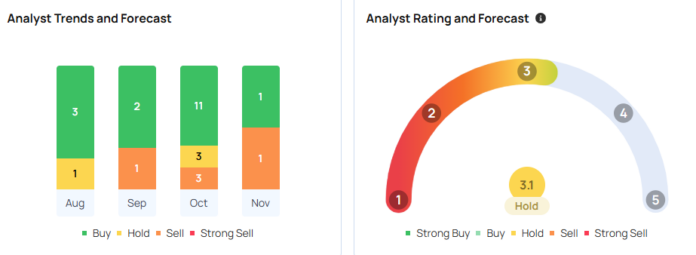Boeing Faces Engineering Exodus: Talent Defection to Space Companies
Declining Engineer Tenures
Boeing Co BA is experiencing a troubling trend: an increasing number of its engineers are leaving for opportunities at space companies. The average tenure for Boeing engineers has declined significantly over the past decade, now sitting at 12.6 years, down from 16.4 years. This information comes from the Financial Times, which cited the Society of Professional Engineering Employees in Aerospace, a union representing 12,000 Boeing engineers. Notably, this decline spans all age groups within the company.
Impact on Future Projects
The loss of engineering talent poses challenges for Boeing, particularly as it looks toward launching new aircraft. The report suggests that while companies like SpaceX and Blue Origin are actively developing innovative space vehicles, Boeing has not unveiled a new airplane design in recent times. “Boeing is an airplane company and at the right time in the future, we need to develop a new airplane. But we have a lot of work to do before then,” stated CEO Kelly Ortberg during the third-quarter earnings call.
Boeing’s ongoing struggles are added pressure in a time when new talent is vital for success. Despite a rich history in aviation, challenges continue to mount.
Recent Troubles and Workforce Adjustments
Earlier in the year, Boeing faced a serious setback when a door panel detached from an Alaska Airlines jet. Further complications arose with the Starliner spacecraft’s technical issues, leading NASA to change plans for astronaut transport. These astronauts will return via a SpaceX Dragon spacecraft, scheduled no earlier than March. In response to financial difficulties, CEO Ortberg revealed plans to reduce the workforce by 10%, affecting nearly 17,000 jobs. Ortberg emphasized the necessity of these layoffs to align with Boeing’s financial situation and recovery strategy.
Stock Performance
On Thursday, Boeing shares closed up by 0.6%, reaching $180.38. However, the stock remains down 28.4% year-to-date, as noted in data from Benzinga Pro. Analysts have set a consensus price target of $197.85, based on insights from 23 analysts, who maintain a “buy” rating on the stock—despite the broader challenges ahead.

Explore more of Benzinga’s Future Of Mobility coverage by following this link.
Related Articles:
Photo courtesy: Shutterstock
Market News and Data brought to you by Benzinga APIs

